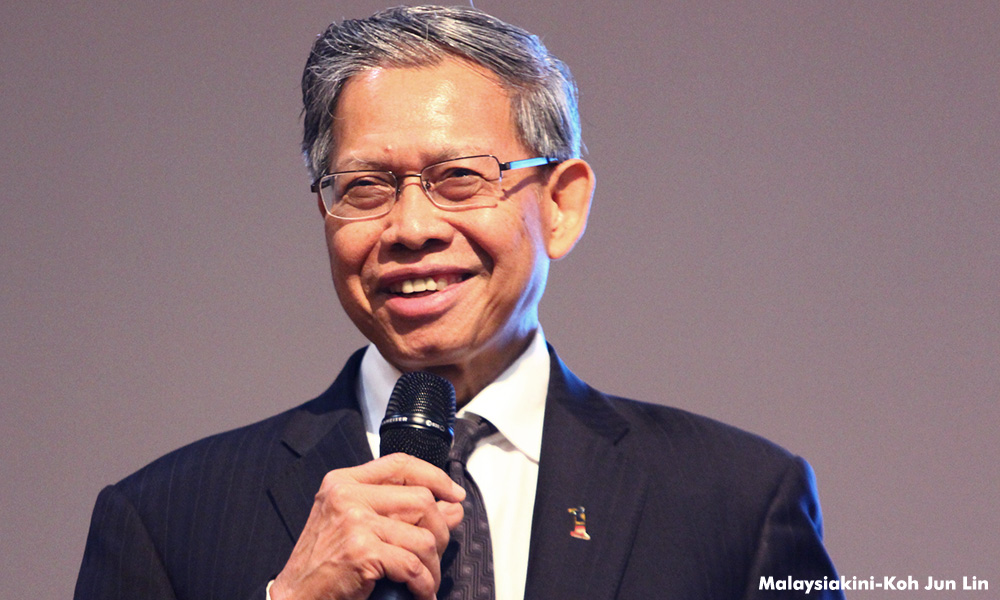
Deputy Agriculture and Agro-based Industry Minister Sim Tze Tzin was the sole person to raise his hand when asked who disagreed that there is too much politicking in Malaysia at present.
Earlier, when Jeli MP Mustapha Mohamed asked the 600 attendees of the National Economic Forum 2019 in Kuala Lumpur this morning to raise their hands if they agreed there is too much politicking, nearly all of them did.
The exchange followed a question from the floor if the panellists agreed that excessive politicking is distracting the government from prioritising economic management.
Malaysian International Chamber of Commerce and Industry (MICCI) president Tan Cheng Kiat, who was one of the panellists, agreed.
Noting that leaders tend to change policies when in power, he emphasised the importance of a clear succession plan with regard to the prime minister's position to provide clarity and certainty to the business community to plan ahead.
“But with the politicking that has been going on within the ruling government, it is certainly causing a lot of anxiety,” he added.
Tan was also critical of the large number of GLCs and their presence in various sectors which prevented the private sector from competing with the government.
“When GLCs own more than 50 percent of the economy, it is communistic already. We are no longer capitalistic.
“We can see in many countries that although (they are) democratic and have free enterprise, the government owns 40 to 50 percent or more (of the economy). That is communistic,” he added.
According to Tan, the ideal scenario would be GLCs making up less than 30 percent of any economy.
Besides, he said it is widely known that GLCs are sometimes set up to benefit the politicians behind them.
“So I think we have to put a stop to this and focus on the few essential infrastructural stuff which benefits the whole country,” he added.
There is only one race, the human race
Tan also summarised four areas that needed to be addressed in order for the business community in Malaysia to move forward.
The first, he said, is the government cannot allow racial and religious undertones to determine its policies.
“Race and religion are personal matters. There is only one race in the world and it is the human race,” he added.
Secondly, Tan said affirmative actions based on race and religion should be replaced with a needs-based framework.
Third on his list was poverty eradication, which he said should also be needs-based.
Fourth, Tan said, the Malaysian education system required a massive revamp and the emphasis should be on learning state of the art material.
“We are so far behind and we are still talking about shoe colour, toys, and calligraphy of a different kind. We should be talking about modern things to catch up,” he added.
Meanwhile, Federation of Malaysian Manufacturers president Soh Thian Lai outlined four principles for the Malaysian government to look into.
The first is its credibility, which means there must be good intentions to go hand-in-hand with consultation and pragmatic implementation.
Secondly, he said there must be consistency, without the sudden shifting of the goalpost and rules must be applied in a uniformed manner at every level of governance.
Thirdly, there must be clarity with clearly defined outcomes and transparent rules and guidelines.
Lastly, Soh said, the business community is hoping for certainty, which means there should not be U-turns from the government in terms of policies.
“It must be holistic, fair and transparent… in order to avoid abuse of power which could lead to opportunities for corruption and hidden costs of doing business.
“I believe all of us here advocate no corruption. This is an area which can make Malaysia more progressive,” he added.
Asked what is the biggest issue confronting the Malaysian business community at present, Associated Chinese Chambers of Commerce and Industry of Malaysia (ACCCIM) deputy president Lim Kuang Sia said it is a shortage of labour.
He urged the government to clarify its policy on foreign workers or at least to provide a transition period.
“We have submitted many of our proposals to the government, but there seems to be no news. Why is the government not solving this problem? I think this is the most important issue - foreign workers.
“The country also has a shortage of TVET people, but the government is already looking into that area,” he said, referring to graduates of technical and vocational education and training institutions. - Mkini



No comments:
Post a Comment
Note: Only a member of this blog may post a comment.